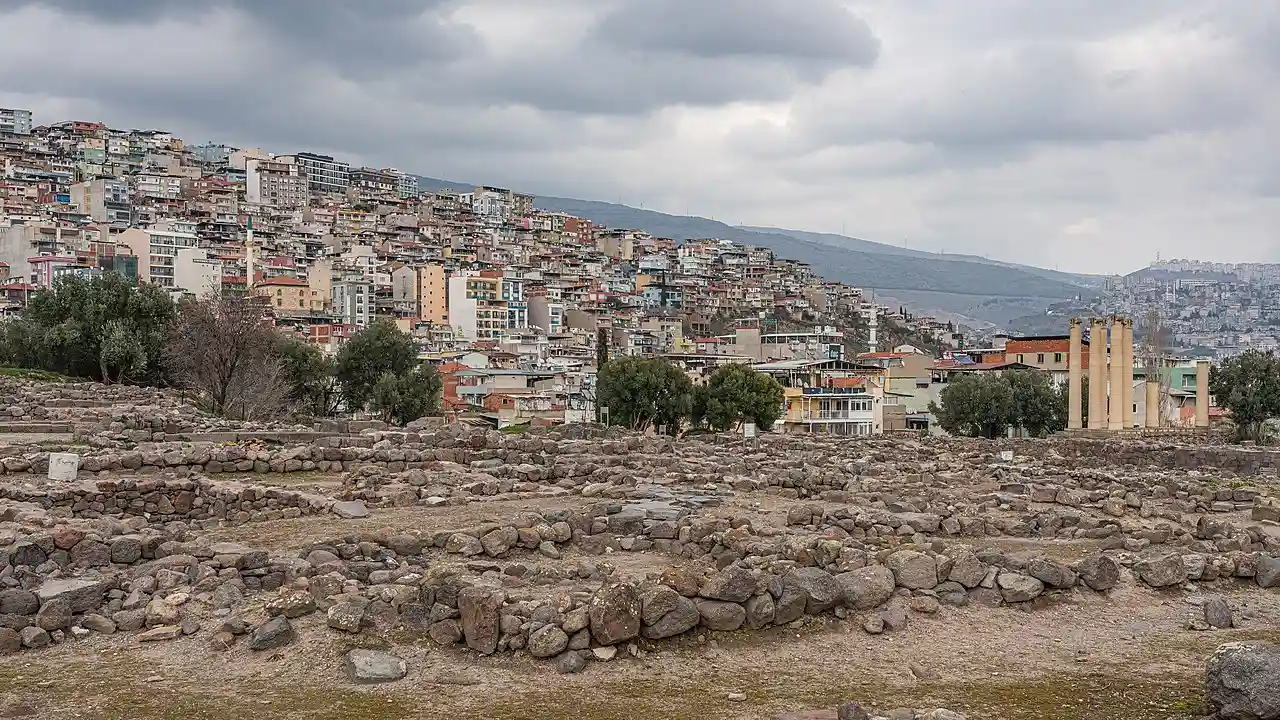 Old Smyrna - Credit: Wikimedia Commons
Old Smyrna - Credit: Wikimedia Commons
 Old Smyrna - Credit: Wikimedia Commons
Old Smyrna - Credit: Wikimedia Commons
Old Smyrna (Greek Παλαιὰ Σμύρνα, Palaia Smyrna, Turkish Eski Smyrna) is an ancient Greek exonym first known to have been applied by Strabo (14.1.37) to a city of the endonym Σμύρνα, Smyrna. It had existed at the same location on the Bay of Smyrna, Turkey, since prehistoric times. Old Smyrna experienced what was termed dioecism (dioikismos), the removal of a city from its subordinate constituents, the reverse of synoecism, at the hands of its Lydian conquerors under their king, Alyattes, in 585 BC, in the Archaic Period of Greece. It is mentioned by Herodotus (1.16.2). Such a procedure, which was standard among the ancient Greeks, razes the center of the city and distributes the population to komai, or "villages," (where they may have lived anyway). Apparently they did not suffer andrapodismos, the massacre of the men and the sale of the women and children into slavery, but were allowed to live komedon, "in villages," albeit without a polis of their own. Read more on Wikipedia
Source: en.wikipedia.org